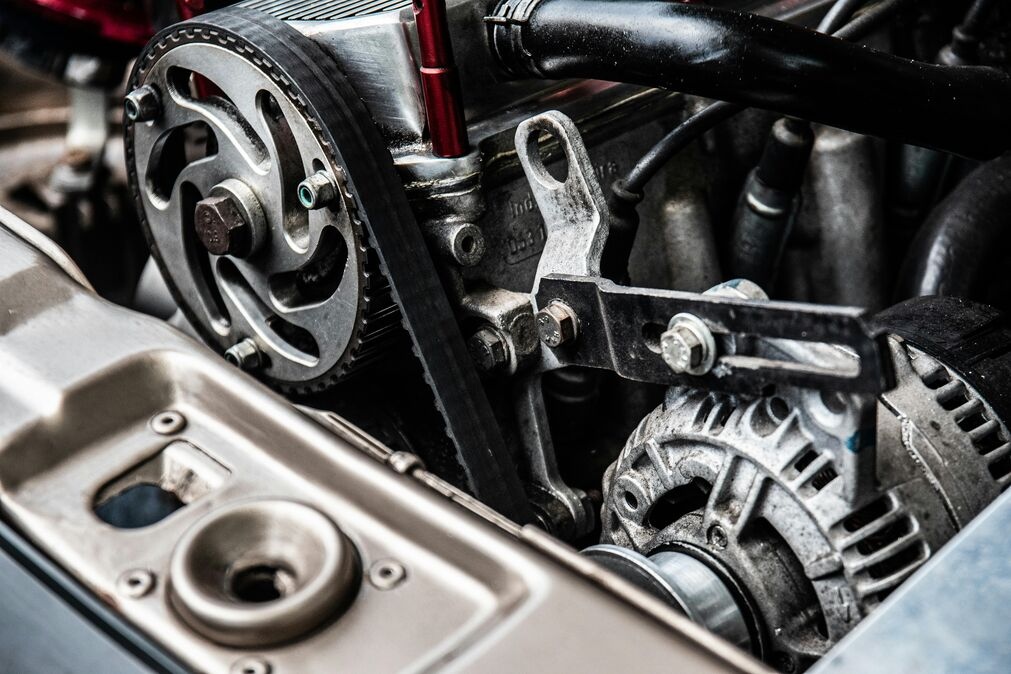Ever hopped into your car and turned the key, hearing your engine roar to life… Then wondered what’s keeping all those lights, gadgets and systems powered up? Well, the answer is (drum roll)… your alternator! If you’ve ever asked yourself – what is an alternator and what does an alternator do – you’re not alone. It’s one of the most important yet little understood parts of a car’s electrical system, but the one we always check when we complete a diagnosis!
What Is an Alternator?
Essentially, the alternator is the main powerhouse of your vehicle’s electrical system. Once your engine is running, the alternator takes over from the battery. It generates electricity to power all of your car’s components from your headlights to your radio, your air conditioning to your power windows. At the same time it’s doing all of that, it also recharges your battery. That’s so it’s ready to start your car again the next time you turn the key.
Without an alternator, your battery would drain really fast and your car wouldn’t run for too long. In short, you won’t get very far!
How Does an Alternator Work?
It sounds complicated but it’s actually quite simple. Your alternator works through a process called electromagnetic induction. When the engine runs, it drives a belt connected to the alternator pulley. Inside, a rotor spins within a stator. That generates alternating current (AC). This is then converted into direct current (DC) by a component called the rectifier, which is what your car’s electrical system uses.
Like we said, it sounds technical, but all you really need to know is the faster your engine spins, the more electricity your alternator produces. It will obviously only do this up to a safe and regulated limit.
Key Roles of the Alternator
So, what are the main systems or components that the alternator runs? Well, here are its most important jobs:
- Powers electrical systems: From your headlights and dashboard to your entertainment unit, it supplies energy while you drive.
- Recharges the battery: It keeps your battery topped up after starting the car.
- Supports safety systems: It makes sure your ABS, airbags and electronic stability control have the electricity they need to work properly.
- Handles accessories: For things like heated seats, charging ports and infotainment systems.
In short… If it’s electrical, your alternator is involved.
Signs of a Failing Alternator
Like all components of a car, alternators unfortunately don’t last forever. When they start to fail your car will give you some clues:
- Dimming or flickering headlights.
- Warning lights on your dashboard (often a battery-shaped icon).
- Strange noises like whining or grinding.
- Dead battery despite being new or recently replaced.
- Electrical accessories behaving erratically.
If you notice any of these signs, it’s best to get your vehicle checked before you end up stranded. A proactive approach means you can have peace of mind and drive with confidence.
What’s the Difference Between an Alternator and a Battery?
You’re not alone if you confuse the alternator with the battery. However, they are responsible for different jobs. The battery provides that initial jolt of power your engine needs to get up and running. The alternator then takes over once the engine is going. It supplies power and recharges the battery. If your car dies after a jump start, the chances are your alternator is the culprit but the poor battery often gets all the blame. That’s not to say that regularly servicing your battery isn’t also important!
How Long Do Alternators Last?
It can vary but on average, an alternator lasts between 80,000 to 150,000 kilometres. That all depends on your driving conditions and vehicle. Heat, dirt and heavy electrical use (like running multiple devices and accessories) can shorten its life. Regular servicing and keeping your electrical system in check can help extend its lifespan pretty significantly.
Can You Drive With a Bad Alternator?
Technically, yes. Not for long though. Once your alternator stops working, your battery is the only power source. Without the recharging that the alternator provides, it will quickly run flat. That will likely leave you stranded, typically at the worst moment like when you’re running late for work. That’s why catching alternator issues early is so important!
Final Thoughts
Okay, so if you’ve ever wondered what an alternator does, now you know. It’s the beating heart of your car’s electrical system! Without it, your battery simply can’t recharge, your gadgets won’t work and your car won’t run. Keeping it in good shape is essential to safe and reliable driving.
If you think your alternator might be failing, bring your car into Autospark. With 40 years of experience under our belt, our technicians will test, repair or replace it so you can get back on the road with confidence.





